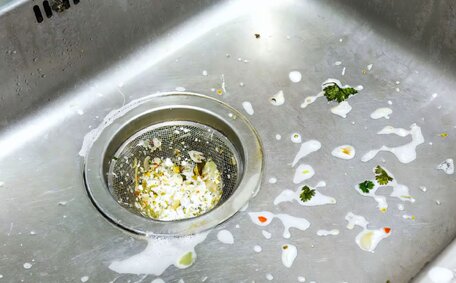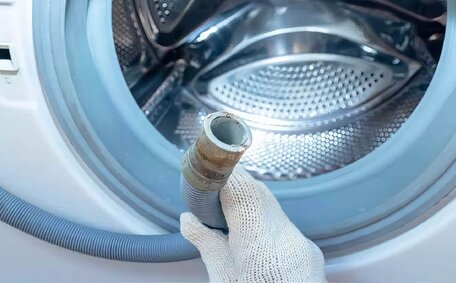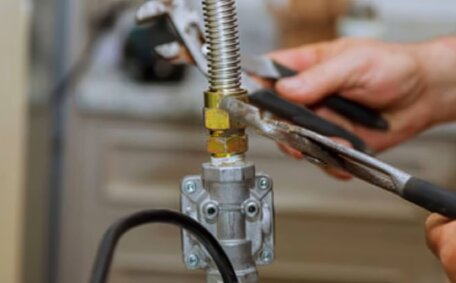Overview of Pipe Relining Process
Pipe relining is a trenchless technology for repairing pipes often damaged by obstructions such as tree roots, without the need for excavation. It involves applying an epoxy coating within the damaged pipe to form a new, stable 'pipe within a pipe’ structure.
The key steps in the pipe relining process are:
- First, technicians use CCTV cameras to inspect the inside of the pipes and identify any issues or damage.
- The pipe is then thoroughly cleaned up to remove any built-up debris or corrosion.
- A flexible, initially uncured resin, often bolstered with fibreglass for strength, is prepared and then used to line the pipe.
- The pipe lining, once a spot of damage was detected, is inflated with compressed air and hardened, blending perfectly into the pipe walls using a hot water system, steam, or UV light to adhere it to the inside surfaces of the host pipe.
- Once transformed into a curedinplace pipe, the lining emerged smooth, jointless and has reinstated flow and pressure.
Trenchless pipe relining offers an efficient, non-invasive alternative, minimising disturbance to your property and plumbing system.
Materials Used for Relining Pipes
Pipe relining uses specially formulated composite resin materials for internal pipe safety that are drinking water safe and meet health standards. The key properties that make these materials suitable for potable water lines include:
- NSF/ANSI 61 certification - This ensures your potable water remains safe as the materials meet the stringent requirements for materials safety in drinking water systems.
- Non-toxic and inert - The cured resins are stable, non-leaching and do not release any chemicals into the water.
- Smooth finish - The seamless resin lining acts to remove all corrosion sites and provides an ultra-smooth surface to optimise water flow.
Solid epoxy, often used in relining, cures without leaving toxic residue. Antimicrobial technology within some linings deters bacterial growth, while fibreglass provides added structural strength. These modern materials are designed to maintain water quality and safety.
Epoxy Resin
Epoxy resin is one of the most widely used and trusted materials for pipe relining applications involving drinking water. It offers unparalleled durability, safety, and resistance to corrosion and chemicals.
Epoxy resin linings are certified to NSF/ANSI Standard 61, ensuring safety for potable water systems even with copper pipe. This guarantees that the water system remains uncontaminated as the cured epoxy won’t leach any toxic substances into the water supply. Epoxy also provides an ultra-smooth finish that prevents build-up and optimises water flow.
Epoxy used in relining is void of volatile compounds, thus not leaving any toxic residues post-curing. It forms a durable, seamless barrier against corrosion, significantly extending the lifespan of pipes, often by over 50 years.
Pipe relining with epoxy resin offers rapid installation and absence of excavation, streamlining the repair process, saving costs, and using time efficiently compared to traditional replacement. It’s suitable for both pressurised and non-pressurised drinking water pipes across residential and municipal settings.
Pipe Relining Standards and Certifications
Pipe relining in Australia must adhere to strict standards and regulations to ensure safety, quality and reliability, especially when used for drinking water supply.
The critical standards adopted are as follows:
- WaterMark Certification Scheme - Materials and products used in contact with drinking water must be certified to this scheme by the Australian Building Codes Board (ABCB).
- AS/NZS 4130 - Polyethylene (PE) pipes for pressure applications are manufactured to this standard.
- AS/NZS 2032 - Sets requirements for installing polyethylene piping system components.
- AS/NZS 2566 - Defines standards for fusion jointing of PE pipes and fittings.
Accredited contractors follow best practice guidelines on cleaning, resin impregnation, and curing, in line with disease control standards, to deliver optimal results.
Certified trenchless relining specialists, dedicated to upholding your home’s plumbing integrity, possess formal qualifications and are audited regularly to confirm their expertise. They conduct relining in compliance with all relevant Australian standards and regulations.
Certified specialists ensure that repairs meet Australian standards for materials, workmanship, and safety, contributing to safe, long-lasting results.
Drinking Water Safety Standards
The Australian Drinking Water Guidelines set by the National Health and Medical Research Council govern drinking water safety, outlining health-based targets to protect public health.
Key requirements in the Australian Drinking Water Guidelines relevant to pipe relining include:
- Ensuring there’s no contamination from hazardous pipes, copper, or bacteria.
- Testing for inorganic chemicals, pesticides, disinfection by-products and radiological qualities.
- Routine sampling, testing and verification.
- Materials and chemicals used must not compromise drinking water quality.
To meet these guidelines, accredited relining contractors follow strict protocols on cleaning, resin impregnation, curing and testing. Only WaterMark certified products are used and samples are collected post-relining to validate drinking water safety.
So while any pipe repairs or modifications can affect water quality, when one does pipe relining with certified, drinking water-safe epoxies, compliance with Australian health standards is ensured. This guarantees the ongoing delivery of safe, high quality drinking water to properties.
Contractor Qualifications
It’s crucial to choose a qualified local plumber who is certified in pipe relining to ensure repairs are performed properly and safely, with technicians adept in trenchless pipe repair and pipe lining methods.
Certified trenchless relining specialists, trusted for repeat service, must have qualifications such as a Certificate III in Trenchless Technology and be licenced plumbers, guaranteeing adherence to industry best practices and standards for quality, compliant results.
At Blacktown Plumbing, our qualified technicians, well-versed in pipe inspections, cleaning and epoxy relining, tackle tasks efficiently. Continuous education ensures our team’s proficiency in the latest relining techniques and materials, enabling us to perform professional, safe repairs.
When selecting any pipe relining company, check their credentials, licences, insurance coverage and guarantees for pipes without. Reputable providers will be transparent about their capabilities and processes when you need them. Though relining is non-invasive, selecting technicians who can help gain proper qualifications ensures the health and safety of your pipe infrastructure.
How Relining Affects Water Quality and Safety
The benefits pipe relining offers are remarkably vast, particularly in the context of ageing cast iron systems, in safeguarding and improving drinking water quality and safety.
The seamless pipe coating with epoxy preserves pipe integrity, preventing corrosion and build-up of sediment and bacteria within leaking pipes. This removes a major source of water contamination and debris that can enter water pipes. By restoring pipe integrity, relining enables optimal water flow and water pressure as well.
Certified potable water-safe epoxies along with proper curing methods make sure the lining materials themselves don’t leach any toxic chemicals either. This maintains water quality even with aged pipes that have had epoxy lining inserted into them.
As a trenchless technology, relining ensures there no excavation that could expose pipes to contaminants. The pipe fully remains enclosed preserving sterility, ensuring there’s no disruption to surrounding soil and infrastructure that could release pollutants near your water line.
Properly relined pipes are estimated to function reliably for more than 50 years, maintaining water safety and quality, with continual testing affirming adherence to health standards.
Relining serves as a long-term solution that enhances drinking water quality for years to come. Although materials and methods may differ, certifications ensure that safety is paramount, for all pipe types including copper.
Health Implications of Relined Pipes
There are minimal health risks associated with properly relined drinking water pipes. The NSF/ANSI 61 certified epoxy materials are rigorously tested to validate they won’t leach any hazardous chemicals post-curing that could pose a health concern.
In fact, relining removes corrosion and contamination sources to improve water quality. The materials are more inert than degrading pipe substrates. Studies by water authorities have verified relined pipes uphold key health standards for over 50 years.
Comparatively, traditional pipe repairs on a broken pipe frequently use glues, solders, and sealants, some of which have components that may leach into the water supply. They also require digging, which can introduce contaminants. Relining avoids this without compromising integrity or quality.
Certified contractors mitigate risks by adhering to best practices for preparation, installation, and post-relining testing, underpinning all work with precision. Measures such as CCTV inspections and NATA-approved water sampling assure relining as a safe, long-term solution.
Benefits of Trenchless Relining
Trenchless relining offers considerable advantages over traditional 'dig and replace’ pipe repair methods. As a no-dig technology, it ensures there is no digging up or disruption to landscaping, concrete, or infrastructure. There’s no contamination risk from exposing pipes or digging near the waterline network.
Relining extends the life of water mains, sewer lines, and stormwater systems quickly, sustainably, and cost-effectively. Epoxy barrier linings provide over 50 years of reliable service at a reasonable cost.
Property owners benefit from the convenience, value, and performance of relining:
- Little to no digging or debris
- No interruption to water or sewer systems
- Marked cost effective advantages over replacement
- Long-lasting repairs warranty for decades
- Restored water pipe flow capacity and water quality, offering homeowners peace mind about their water’s safety
At Blacktown Plumbing, we take tremendous pride in our advanced trenchless relining expertise, providing a multitude of benefits. We implement best practises for safe, effective, and minimally invasive pipe renewals to prolong asset lifespan.
Pipe Longevity with Relining
Relined pipes, often restored within hour, can endure longer than traditional pipe systems, maintaining superior water quality and safety throughout their extended lifespan.
Epoxy barrier linings ensure your pipes last for over 50 years, resisting corrosion and meeting drinking water standards. Guarantees extend up to 10 years, often exceeding this, as confirmed by water authority studies.
By rejuvenating what was once compromised, and ensuring the pipe integrity, flow efficiency, and negating contamination risks, relining confirms the sustained provision of safe drinking water for ensuing generations. The non-invasive materials and methods avoid pipe impacts that could shorten lifespan.
With superior durability compared to traditional methods, relining is a smart, long-term investment. Blacktown Plumbing uses certified trenchless methods and safe epoxies, ensuring a renewed pipe system with an extended lifespan.
Contact us at jobs@blacktownplumbingservices.com.au or 1300 349 338 for prompt relining services. Our team responds quickly to ensure your satisfaction and support.






